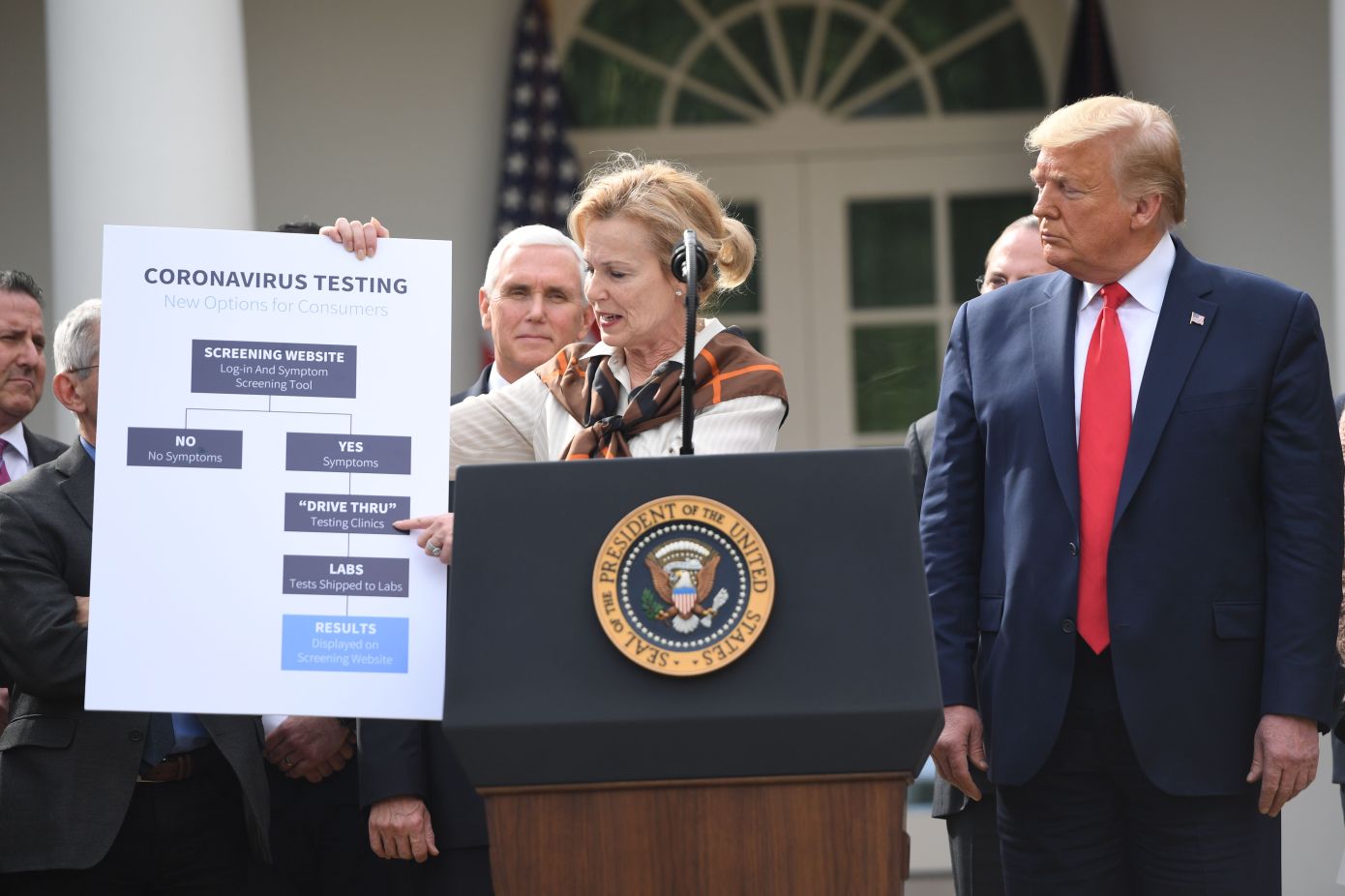In a press conference at the White House, President Trump today announced that 1,700 Google engineers were working on a coronavirus screening site. That site was supposedly the first step in a new screening process that would lead people from figuring out if their symptoms warranted more testing to the location of new “drive through” testing stations. But Trump was wrong. This screening site isn’t being developed by Google. Instead, it’s being built by Verily, Alphabet’s life science division — and it’s not ready to launch yet either.
Update: here’s the latest on this story.
White House now says pilot of coronavirus screening site will roll out Monday for Bay Area
While both share the same parent company in Alphabet, these are two very different companies. In addition, as Verily noted in a statement it provided almost three hours after Trump made the announcement, this site isn’t quite ready yet.
“Verily is developing a tool to help triage individuals for COVID-19 testing. We are in the early stages of development, and planning to roll testing out in the Bay Area, with the hope of expanding more broadly over time,” the company said in its statement. “We appreciate the support of government officials and industry partners and thank the Google engineers who have volunteered to be part of this effort.”

Verily specifically mentions that the site is in its “early stages.” Debbie Birx, the White House Coronavirus Response Coordinator, as well as Trump, made no mention of the fact that this site wasn’t ready yet or that it would only roll out in the Bay Area at first.
Instead, anybody watching the press conference surely came away with the impression that the site was essentially ready, especially given its pivotal role in the overall screening process.
“I want to thank Google. Google is helping to develop a website,” Trump said. “It’s gonna be very quickly done — unlike websites of the past — to determine whether a test is warranted and to facilitate testing at a nearby convenient location. We have many, many locations behind us, by the way. We cover this country and large parts of the world, by the way. We’re not gonna be talking about the world right now, but we cover very, very strongly our country. Stores in virtually every location. Google has 1,700 engineers working on this right now. They have made tremendous progress.”
Similarly, when Birx presented the new screening approach, she specifically noted that the process will start with the screening website. Given some of Trump’s earlier comments in the press conference, a number of pundits believed that the site would be ready by Sunday night.
Here is Verily’s statement about its plans for its site, according to a spokesperson: “What I can share at this time is that our aspiration is for the triage tool to be used much more broadly. Initially, we’re linking it with several sites in the Bay Area to test and iterate, and collaborating closely with organizations like Quest Diagnostics and LabCorp who are also working on additional approaches to making testing more accessible and expedient in other areas.”
In a different statement to The Verge, Verily said the tool was originally meant for healthcare workers and that the presidential announcement changed its course to becoming a public site. Whatever the original intent of the project, it seems quite clear that Verily was taken somewhat aback by the announcement.
Now, it’s not uncommon for anybody outside of the tech world to use Alphabet and Google interchangeably. Still, Verily is not Google and the Bay Area is not the whole country. Those are important facts.
































Comment